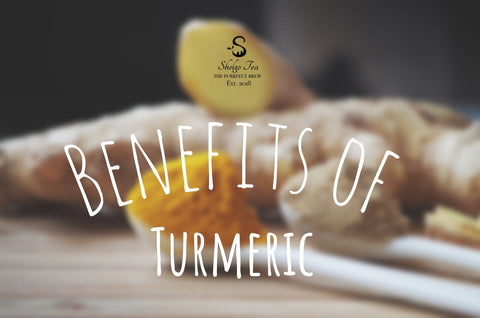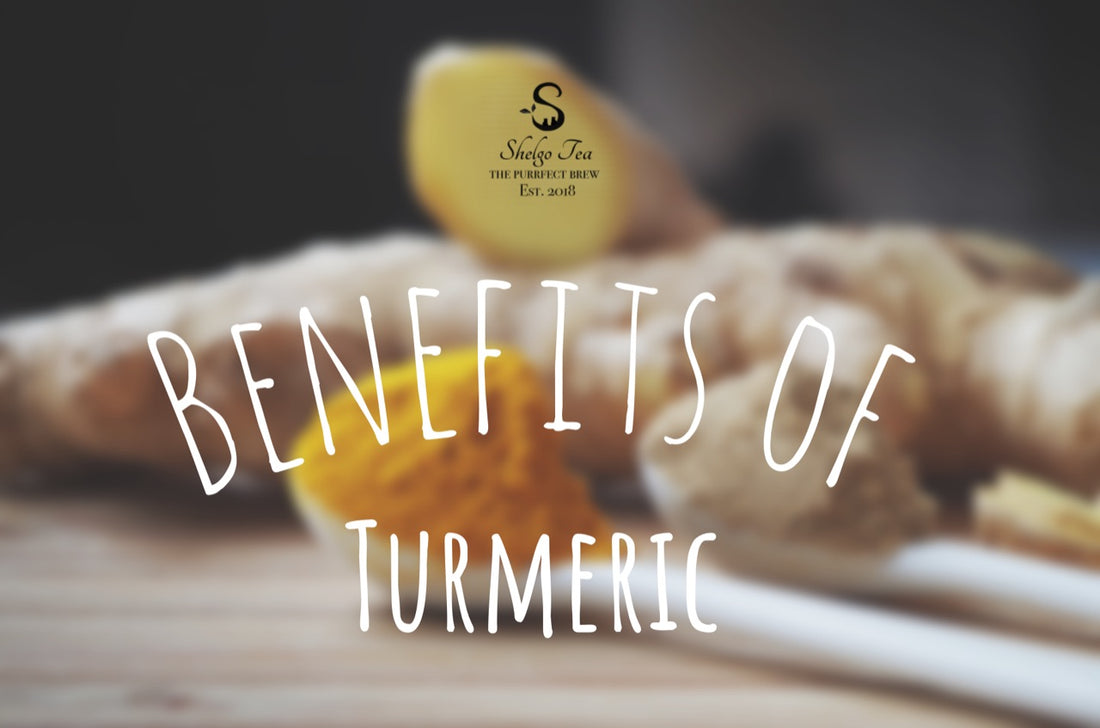Turmeric has been hailed as an herbal miracle, a natural substance that possesses a wealth of health benefits and has been linked with everything from a reduction in chronic diseases to pain relief and more. But how much of this is true? And is turmeric really as healthy as people claim?
The Real Benefits of Turmeric

Turmeric contains a compound known as curcumin, which is said to be responsible for many of the health benefits of this spice, but it is not easily absorbed by the body and has been called a “poor drug candidate” because of its instability and poor solubility, among other things. (1)
However, it has been said that piperine, found in black pepper, can increase absorption, and it should also be consumed with a little fat. This is why a pinch of black pepper and some whole milk are recommended when making turmeric tea.
The following health benefits of turmeric refer to studies that have been conducted using either a curcumin extract or pure turmeric root/powder.
1. It Reduces Inflammation
Chronic inflammation plays a significant role in many common diseases, ranging from digestive issues to heart disease and cancer. If you can fight it then you should be able to reduce your chances of developing these diseases, and there is a lot of science backing up this belief.
This is thought to be one of the reasons why herbal teas like nettle and our very own Greek mountain tea are so effective, and it could also be behind many of the positive research surrounding turmeric. Curcumin is a potent anti-inflammatory, and studies have compared its effectiveness to potent prescription medications, including one that compared it to corticosteroid therapy. (2)
This is promising, as there are very few side effects with therapeutic doses and it’s easily obtained. It doesn’t mean that a little turmeric can replace potentially dangerous drugs like NSAIDs, which have been linked to gastrointestinal and heart problems in large doses and with chronic use, and it definitely doesn’t mean that it can kill pain and eradicate short-term inflammation with the same efficiency, but there could be a number of benefits in tackling chronic inflammation. (3)
2. It is a Potent Antioxidant

We’ve discussed the antioxidant content of many different herbal teas, spices, and herbs, from the ones we sell ourselves to the likes of Cistus tea and even the highly prized spice saffron. The simple fact is that nature is a great source of these free-radical destroying compounds, which is why a diet rich in whole foods has been linked with so many health benefits.
Turmeric is another spice that is rich in antioxidants, but it’s so much more than that, as the compounds in turmeric may also help to boost the effectiveness of the body’s antioxidants. (4)
3. It Could Play a Role in Cancer Prevention
As mentioned above, the anti-inflammatory effects of turmeric could reduce the risk of chronic diseases like cancer, and there have also been a number of studies to take a closer look at this possibility. One such study was conducted in the UK for a product called Pomi-T. It combined turmeric powder with other natural food stuffs like broccoli, green tea, and pomegranate to see if they could combine to treat prostate cancer. (5)
There were some very promising results, with a few patients noting major changes, but results were mostly mixed and more research needs to be conducted before any conclusions can be made about the effects of these food stuffs against this form of cancer.
Elsewhere, there are a number of studies showing that curcumin is incredibly effective at inhibiting the growth of cancer cells in the laboratory and even in animal studies, but it’s a big leap to go from this to human trials. (6) This is an ongoing area of research and one that continues to attract interest, but the complications involved with running actual human trials means we’re a long way from understanding just how effective, or otherwise, this spice really is in the treatment or prevention of cancer.
4. May Improve Brain Health
Curcumin has shown to be effective at reversing the negative effects that chronic stress has on the brain, increasing the levels of something known as “brain-derived neurotrophic factor”, reduced levels of which has been linked to everything from mental health issues like depression to serious neurological diseases like Alzheimer’s. (7) (8)
That doesn’t necessarily mean it can cure or prevent these diseases, but it may play a role, and at the very least it warrants further study to see if there is anything more to these claims.
Other Benefits of Turmeric

There are some very questionable clams being made about turmeric right now. Whenever there is a new superfood generating excitement with researchers and consumers alike, you’ll find a plethora of companies claiming it can also help with many other ailments. We’ve seen turmeric being recommended in the treatment of dry skin, and it is even being hailed as a natural teeth whitener.
Not only is there no evidence to confirm these claims, but common sense would suggest they are unfounded. Anyone who has cooked with turmeric root or turmeric powder can attest to just how much this stuff stains. It’s the last thing you should be putting on your skin or your teeth.
Turmeric has shown some promise in the treatment of mental health issues, especially depression, which we alluded to above. One study found that curcumin could act as a potentiator of sorts for antidepressants, improving their effectiveness. But it is nowhere near as effective as these drugs on its own, and the effects seem to be negligible at best when it is not consumed alongside prescription medication.
There are also claims suggesting that it can help to relieve a range of digestive disorders. These are a little more believable as we know that turmeric can reduce inflammation, but if this spice does possess miracle health benefits then it seems likely that those benefits will lie elsewhere.
How to Take Turmeric
We have published a guide on the Best Ways to Consume Turmeric that looks at this subject in more detail, covering tea recipes, supplements, and more. Check it out if you want to add some of this spice to your diet.

